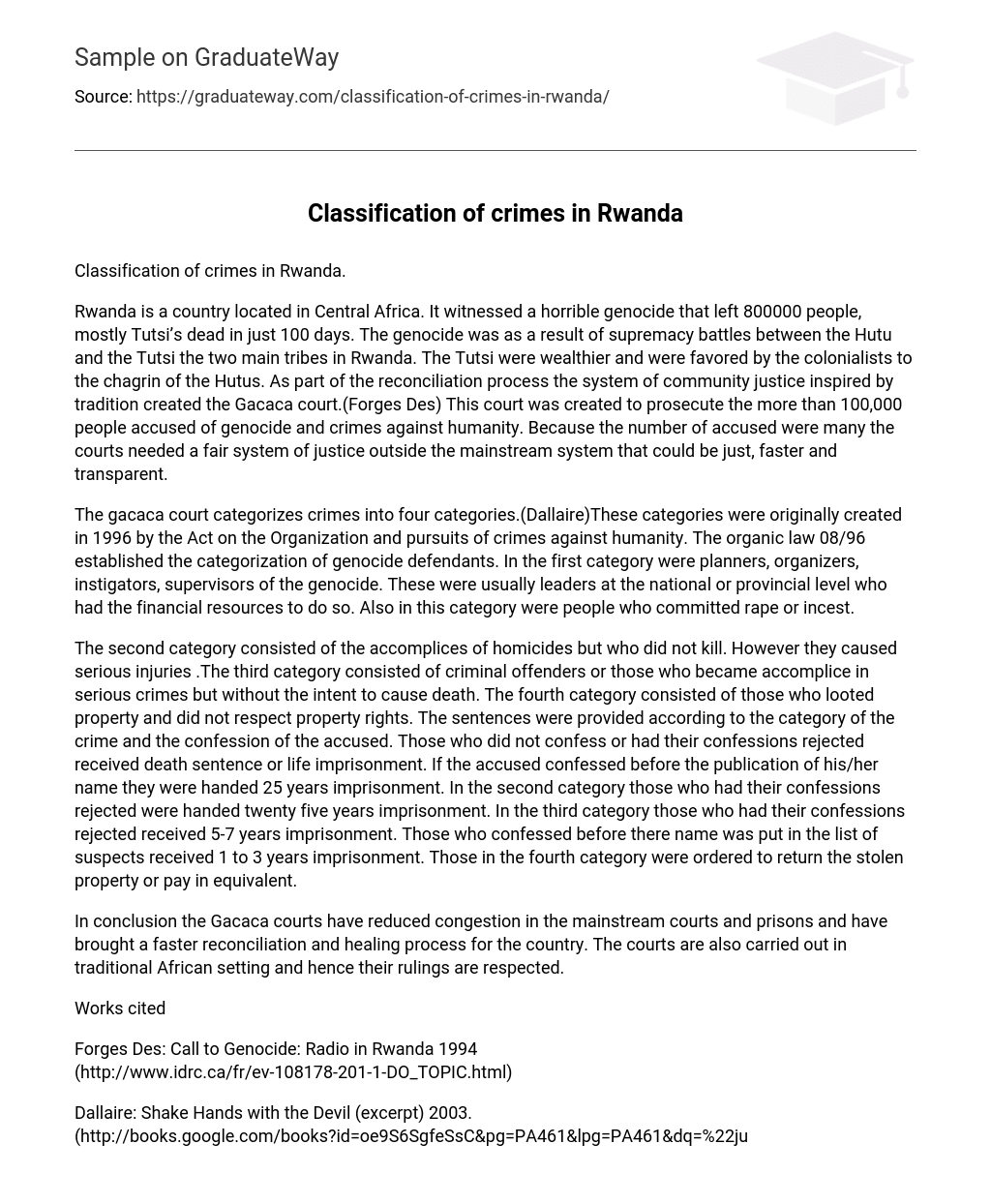Rwanda is a country located in Central Africa. It witnessed a horrible genocide that left 800000 people, mostly Tutsi’s dead in just 100 days. The genocide was as a result of supremacy battles between the Hutu and the Tutsi the two main tribes in Rwanda. The Tutsi were wealthier and were favored by the colonialists to the chagrin of the Hutus. As part of the reconciliation process the system of community justice inspired by tradition created the Gacaca court.(Forges Des)
This court was created to prosecute the more than 100,000 people accused of genocide and crimes against humanity. Because the number of accused were many the courts needed a fair system of justice outside the mainstream system that could be just, faster and transparent.
The gacaca court categorizes crimes into four categories.(Dallaire)These categories were originally created in 1996 by the Act on the Organization and pursuits of crimes against humanity. The organic law 08/96 established the categorization of genocide defendants. In the first category were planners, organizers, instigators, supervisors of the genocide. These were usually leaders at the national or provincial level who had the financial resources to do so. Also in this category were people who committed rape or incest.
The second category consisted of the accomplices of homicides but who did not kill. However they caused serious injuries .The third category consisted of criminal offenders or those who became accomplice in serious crimes but without the intent to cause death. The fourth category consisted of those who looted property and did not respect property rights.
The sentences were provided according to the category of the crime and the confession of the accused. Those who did not confess or had their confessions rejected received death sentence or life imprisonment. If the accused confessed before the publication of his/her name they were handed 25 years imprisonment.
In the second category those who had their confessions rejected were handed twenty five years imprisonment. In the third category those who had their confessions rejected received 5-7 years imprisonment. Those who confessed before there name was put in the list of suspects received 1 to 3 years imprisonment. Those in the fourth category were ordered to return the stolen property or pay in equivalent.
In conclusion the Gacaca courts have reduced congestion in the mainstream courts and prisons and have brought a faster reconciliation and healing process for the country. The courts are also carried out in traditional African setting and hence their rulings are respected.
Works cited
- Forges Des: Call to Genocide: Radio in Rwanda 1994 (http://www.idrc.ca/fr/ev-108178-201-1-DO_TOPIC.html)
- Dallaire: Shake Hands with the Devil (excerpt) 2003.





